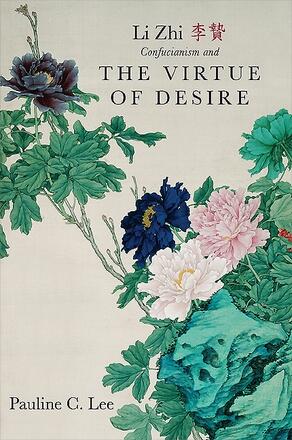
Li Zhi, Confucianism, and the Virtue of Desire
Alternative formats available from:
A philosophical analysis of the work of one of the most iconoclastic thinkers in Chinese history, Li Zhi, whose ethics prized spontaneous expression of genuine feelings.
Description
Li Zhi (1527–1602) was a bestselling author with a devoted readership. His biting, shrewd, and visionary writings with titles like A Book to Hide and A Book to Burn were both inspiring and inflammatory. Widely read from his own time to the present, Li Zhi has long been acknowledged as an important figure in Chinese cultural history. While he is esteemed as a stinging social critic and an impassioned writer, Li Zhi's ideas have been dismissed as lacking a deeper or constructive vision. Pauline C. Lee convincingly shows us otherwise. Situating Li Zhi within the highly charged world of the late-Ming culture of "feelings," Lee presents his slippery and unruly yet clear and robust ethical vision. Li Zhi is a Confucian thinker whose consuming concern is a powerful interior world of abundance, distinctive to each individual: the realm of the emotions. Critical to his ideal of the good life is the ability to express one's feelings well. In the work's conclusion, Lee brings Li Zhi's insights into conversation with contemporary philosophical debates about the role of feelings, an ethics of authenticity, and the virtue of desire.
Pauline C. Lee is Assistant Professor of Chinese Religion and Culture at Washington University in St. Louis.
Reviews
"…draws welcome attention to a central but still enigmatic figure in Chinese intellectual history. The author is to be commended for working across literary, historical, and philosophical boundaries in shedding light on Li Zhi's historical significance and intellectual legacy. By recovering Li Zhi from the (sometimes contradictory) modernist readings to which he has heretofore been subjected, this book opens the way to a new intellectual history of the late Ming era. " — Philosophy East & West
"…refreshing and insightful … This book is beyond a doubt a very important contribution to the studies of the history of Chinese philosophy and intellectual culture, especially for its invitation to avoid stereotypes in its understanding. " — Acta Orientalia Vilnensia
"This is a fascinating book. Lee has a great talent for intellectual biography and a cogent explanation of the complicated philosophical vision of a major late-Ming Confucian thinker. " — John H. Berthrong, author of Expanding Process: Exploring Philosophical and Theological Transformations in China and the West